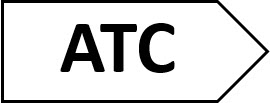Areas of Study - Degrees & Certificates >  Health Sciences > Medical Radiologic Technology Program
Health Sciences > Medical Radiologic Technology Program
The course of study for a radiologic technologist is a two-year program, leading to an Associate of Applied Science degree. The program is offered at LSC-Montgomery and LSC-CyFair. Each college accepts one class each year into the radiologic technology program. The six-semester program includes two summer semesters, for a total of 63 credit hours.
The curriculum is a balance of general education and technical courses in the classroom and laboratory, as well as supervised clinical experiences at local hospitals and outpatient clinics. This combination provides the student an opportunity for educational development and assurance of competency in radiographic skills.
The program is designed to provide the student with the knowledge and skills to perform radiographic examinations, provide patient care and assist the radiologist during diagnostic procedures. Radiologic technologists are employed in medical centers, community hospitals, extended care facilities, physicians’ offices, specialist clinics, and other health care institutions.
Computed Tomography is an advanced radiographic imaging modality that utilizes highly collimated fan- shaped x-ray beam and array of radiation detectors to produce cross-sectional images of human body structures and organs needed by physicians for diagnostic purposes. Computed tomographic images can be reconstructed in various anatomical orientations to demonstrate image details that allow for better visualization of pathology, diagnostic analysis, and radiologic interpretations.
The LSC-Montgomery Computed Tomography program curriculum consists of 5 courses totaling 16 credit hours, and these are offered in one semester. The didactic education courses (8 credit hours) are offered at the LSC-Montgomery campus in the evenings while the clinical education courses (8 credit hours) are provided at affiliated clinical sites. The curriculum is designed to enable students to acquire knowledge in computed tomography physics, equipment operation/methodology, cross-sectional anatomy, patient care, and develop CT imaging skills, which give Medical Radiologic Technology (MRT) graduates an employment edge and increased career mobility.
Prospective applicants seeking admission into the program must be graduates of a 2-year JRCERT accredited Radiography, Radiation Therapy, or Nuclear Medicine Programs and must hold current ARRT or equivalent certification.
The Computed Tomography Certificate program is housed in Building B with the current AAS degree program in Medical Radiologic Technology in the Division of Natural Sciences and Health Profession (NASH). The program plans to admit up to 15 students per cohort every Spring and Fall semester.
The Magnetic Resonance Imaging (MRIT) program is a 12-month post-associate degree program that provides didactic and clinical instruction to currently certified American Registry of Radiologic Technologist (ARRT) or Nuclear Medicine Technology Certification Board (NMTCB) and state licensed (as applicable) Radiation Therapy Technologists.
Magnetic resonance technologists use the resonant frequency properties of atoms within a magnetic field to image anatomic and/or physiologic conditions of the body to assist physicians in the diagnosis and treatment of disease. MRI is an imaging modality that produces exceptionally detailed images of the tissues and organs of the body in a variety of imaging planes. This course of study focuses on the underlying scientific theory, sectional anatomy, pathology and clinical protocols. Emphasis is placed on patient care and safety, principles of magnetism and the physical and chemical interactions of living matter within magnetic fields.
This certification will prepare students to make an application to sit for the post-primary certification examination in Magnetic Resonance Imaging administered by the American Registry of Radiologic Technologist (ARRT) pending review and approval by ARRT.
Admissions Information
Program Curriculum


By completing the program, students may earn as many as three awards:
- Medical Radiologic Technology, AAS
- Computed Tomography, ATC
- Magnetic Resonance Imaging (MRI), ATC
Medical Radiologic Technology, AAS
[AAS_MRDR offered at LSC-CyFair and LSC-Montgomery]
Total Credit Hours Required for Degree: 63
Computed Tomography, Advanced Technology Certificate (ATC)
[C4_CTM4 certificate offered at LSC-Montgomery, admission requirements exist]
Prerequisite: Completion of a 2-year JRCERT accredited Radiography, Radiation Therapy, or Nuclear Medicine Program and must hold current ARRT or equivalent certification
Total Credit Hours Required for Certificate: 16
Magnetic Resonance Imaging, Advanced Technical Certificate
(C4_MRI4 certificate offered at LSC-CyFair)
The magnetic resonance imaging program is a 12-month, three-semester program that provides didactic and clinical instruction to currently certified and licensed medical radiologic technologists while preparing them to be eligible to apply to take the post-primary certification examination in Magnetic Resonance Imaging administered by the American Registry of Radiologic Technologists (ARRT).
Prerequisite: Students currently enrolled in a JRCERT accredited school may apply; however at a minimum the associate degree must be awarded prior to admission and the ARRT primary certification registry examination must be passed within 6 weeks of enrollment or the student may be administratively withdrawn from the program.
Total Credit Hours Required for Certificate: 19